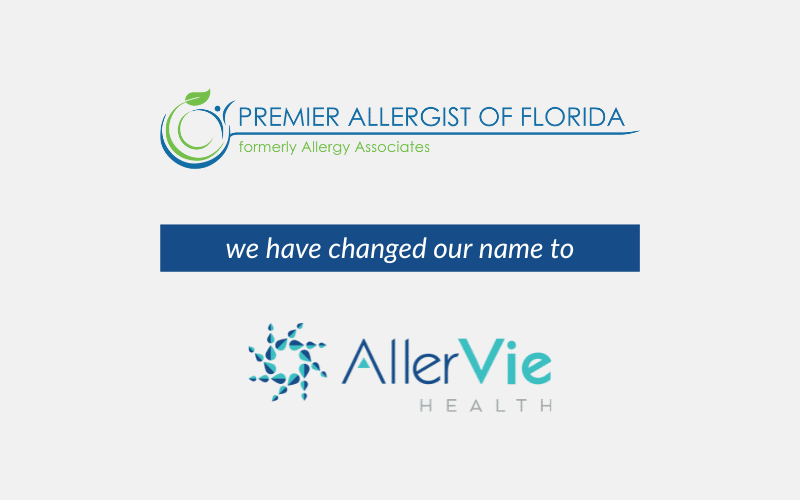New Name. Enhanced Patient Care.
Introducing a new era of patient care with an exciting digital patient experience and rebranding to AllerVie Health!
Many things are changing, but our commitment to you is not.
As part of the AllerVie Health network, we will always be dedicated to improving and expanding our services for our patients. We continuously strive to deliver not only the highest quality care to you but also the safest, most efficient, and most patient-centric experience possible. These clinic changes, among many others, will allow us to better serve you now and in the future!
Patient Resources
Find Your Clinic Location & Resources
We want to make your experience as seamless as possible, so we’ve put together various resources to help make your journey smoother. Please visit the location nearest you to see what’s currently available in your area.
View All LocationsSee What's New & Changing
As part of AllerVie Health’s national network, our allergists, clinical teams, and staff will continue to provide you with the same high-quality services, testing, and treatments that you’ve come to know and trust over the years.
AllerVie Health is a national network of board-certified allergists who are committed to establishing the gold standard in patient care and experience, expanding access to best-in-class care to those who need it most, and bringing relief and renewed vitality to the millions of Americans affected annually.
Our trusted partners share in our mission to establish the premier standard of care and expand access nationwide. We firmly believe that, together, the best is ahead of us!
01
New Electronic Medical Record (EMR) System & Patient Portal
We have implemented an electronic medical record system and launched a new patient portal experience for you. This new technology solution will help us provide better, more comprehensive care for you, as well as communicate with you in a convenient, secure way.
02
Rebrand to AllerVie Health
Under any brand name, you are at the forefront of everything we do and that will never change. We will always be dedicated to the great state of Florida and will continue to serve patients from our current locations across the state.
03
Changes To Our Billing/Accounts Services
We have transitioned to a new billing service provider where you can call our dedicated billing team directly for questions about statements, pay bills over the phone, set up payment plans, etc.

